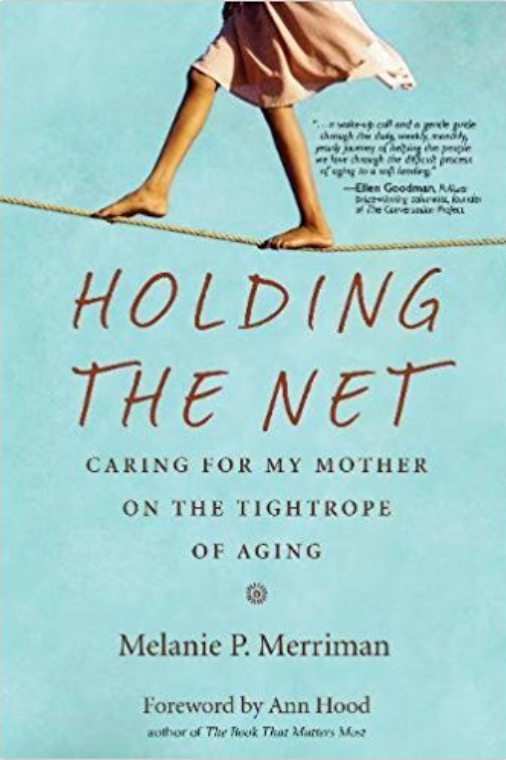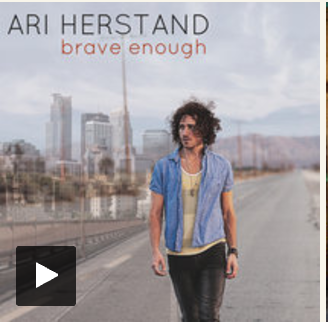Graduation In Prison
/Yesterday, I attended my second Exchange for Change graduation, which was more like a performance given by the guys who’ve completed one of a number of writing classes, mine included. This experience was different than my first one. Getting through security at Dade Correctional Institution was not scary, like before. I guided my friends through the process—hand over ID, take off shoes, walk through metal detector, wait behind locked door, wait again behind another locked door. They were nervous about visiting a prison for the first time.
This time, when I entered the visiting area, I knew the inmates would be wearing their prison blues and roaming freely around the room. I knew they would be kind, and welcoming and polite, because they are my friends now. I know their names and their stories. Twenty-five of these 200 or so men have taken my memoir classes. We write with vulnerability and honesty. Me included.
“Be careful,” friends said when I first started volunteering in prison. They told me scary stories of people they’d read about who tried to help prisoners and were murdered later. I understood my friends’ fear, but after my first visit to DCI, I knew my friends needed to meet these men in order to change their perception of the people we incarcerate.
Mike Gonzalez, Allen Dorsey “One Draft Rev” and Eduardo Martinez “E” were the first to greet us. I introduced my Writing Class Radio co-producers, Andrea Askowitz, Virginia Lora and Misha Mehrel to the men I have come to value and route for. “Misha just told a story on our last episode,” I told Mike. “Misha, Mike’s story was the one we aired two episodes ago.” It was so nice to connect the men—my outside friends to my inside friends.
I spend every Tuesday from 11-1pm inside DCI teaching memoir writing as a facilitator for Exchange for Change. I encourage the men to write their true, personal stories. Mike says he now hears my writing tips even when he writes letters to his family. Like what? What is this story about? Ground the reader…who, what, when, where? Mike told me that his sister listens to our podcast and that because of it, she feels closer to him. Barnett said that telling his story has made him feel more open and free. Willie said that he finally understands how to get his thoughts on paper. Willie’s thoughts tell of a past filled with discrimination, neglect, violence and regret. Some of Willie’s stories tell of childhood love. It’s obvious to me that Willie could have gone in a different direction if another path was available to him. It wasn’t.
E was the MC. He is talented and was as humble and as funny as ever. E spoke without notes and performed his piece without flubbing a cue. Genius was the word tossed around by the audience post performance. Genius doesn’t do him justice. His words, his voice made me cry. Not just because his words about mistakes and youth and life in prison touched me, but because his talent is real and valuable and is wasted in here, for life, without parole for something that happened when he was 19 years old. Remember when you were 19 and malleable and stupid and thoughtless?
Andrea met Luis Aracena and Juan Esquivel, two of my inside students whose stories I’ve shared with her. Stories we intend to share on the podcast. Luis stood strong while he performed Second Chances. I know from his stories in class that Luis served this country then lost his mind and his fight with cocaine. This country put him in prison when he needed some rehab and some love and a second chance. Juan’s poem spoke of a freedom only available in his dreams. ‘You see, I have not held my sons Juan Jr. and Roger for 19 years…I wake up, and all that I see is the cold, concrete coffin that envelops me. My life was like a sinking ship headed to the bottom of the sea, where no one would find me. Buried under the waves that shattered my dreams until Exchange for Change rescued me. Since then, I fly away on the wings of my pen, flying free through my writings and my songs.’ Juan ended his story with a song:
Dear Butterfly, fly away.
You don’t have to live inside the prison gate.
Dear Butterfly, fly away.
Share your beauty with a free heart today.
On the way out Juan handed me a note that read, “Allison, thank you for caring the way that you do! May your beauty continue to fly into the hearts of those whom society has cast away!” I shake Juan’s hand, smile and sneak a hug. Hugging is a no no in prison. But I sneak a hug with Barnett and Willie and E because they are my friends and I need a hug as much as they do.
I rode home with Andrea, my friend and vice chairman of Exchange for Change, Sonesh Chainani and his mom, Sheila. “How can we get these guys out of here?” Sheila asked. Sonesh has a law degree from Columbia but doesn’t actively practice law. Sonesh shook his head at his mom. Andrea was disgusted as Sonesh explained the three strikes rule, minimum mandatories, the appeals process. I was frustrated. I just kept saying, What a waste. What a waste. Andrea and I agreed that we need to get their stories out. The world has to know these men, understand them, so we can convince lawmakers to end these long prison terms. We need to motivate our friends to give to organizations that are making a difference in the lives of underprivileged children who need education and love and the option for a successful path in life. Groups like The Seed School and Educate Tomorrow help inner city and foster care children. Groups like Leap and Exchange for Change help prisoners move through life in a positive way as better human beings. Podcasts like Planted in Miami highlight powerful work the South Florida community is doing.
Before I met the men at DCI, fear and ignorance said, “Lock them up for life.” Now that I know more, I refuse to let fear win. If you want to make a difference, please go to http://www.exchange-for-change.org/donate/and make a donation. Any amount will help.
Show Notes for Episode 39: Get Out of Your Way and Write
/
On today’s episode we’re talking about getting out of our own way when writing a story. The writing process starts with getting the truth on paper. We write about situations or problems we’re dealing with or have dealt with, things we’re still trying to understand or resolve. The goal is getting to the reason we’re writing the story and what the story is really about.
Andrea is a huge believer in writing and rewriting. That’s her process. A first draft is usually shit. Then the second draft all the way to the 222 draft, is usually still shit, but those drafts are critical for telling the story well. But with all this writing and rewriting, we can get in our own way.
In this episode, you'll hear student Misha Mehrel’s story Bad Breath. Misha brought this piece to class a couple of weeks ago and it needed very little editing. You will also hear an interview with Misha about his writing process. Misha was wary of writing about his father’s cancer diagnosis. What he did instead was start by writing about physical problems that had been bothering him. He wrote graphically and intimately about his breath and bowel movements, which served to free him up to write about his dad.
Two prompt ideas to help you, the listener, loosen up. Body Odor or Menstrual Blood. See where that takes you.
Listen to other stories by Misha in Episode 36 about Hurricane Irma (https://soundcloud.com/writing-class-radio/episode-36-hurricanes-and-stories-define-us-since-the-beginning-of-time) and another in Episode 16: Comfort Zone where he told a story about his hairy ass.
Writing Class Radio is a podcast that brings you true, personal stories written in an actual memoir writing class and a little instruction on how to write your own stories.
Writing Class Radio is co-hosted by student Allison Langer (www.allisonlanger.com) and teacher Andrea Askowitz (www.andreaaskowitz.com). This podcast is equal parts heart and art. By heart, we mean getting to the truth and by art, we mean the craft of writing.
Writing Class Radio is produced by Virginia Lora, Andrea Askowitz and Allison Langer. We are sponsored by and recorded at the University of Miami School of Communication.
Our fall writing contest is officially on! The prompt is Secret Pleasure. Deadline is Feb. 14, 2017. Details at writingclassradio.com.
Theme music by Ari Herstand. Additional music by Kevin Myles WIlson
Taryn Southern and Podington Bear. You can find all our music on our website.
Please support our 20+2 campaign. Give $20 and get two people to subscribe. Our goal is 2,000 new listeners and $20,000 by the end of the year. Please help us reach our goal. Please go to writingclassradio.com and hit the 20+2 button.
There’s more writing class on our website (www.writingclassradio.com), twitter (@wrtgclassradio) and Facebook.
There’s no better way to understand ourselves and each other than by writing and sharing our stories. Everyone has a story. What’s yours?
Episode 37: Ready to Write that Memoir or Novel? Nov. is National Novel Writing Month
/Episode 37: Ready to Write that Memoir or Novel? Nov. is National Novel Writing Month.
November is #NaNoWriMo and we have executive director, Grant Faulkner, on our show. Today we’re talking about novels because we go both ways. And also because storytelling principles are the same when writing fiction or nonfiction. Get inspired and join millions of people around the world who are racing to finish a book this month. Allison’s in the race.
Writing Class Radio is a podcast that brings you true, personal stories written in an actual memoir writing class and a little instruction on how to write your own stories.
Writing Class Radio is co-hosted by student Allison Langer and teacher Andrea Askowitz. This podcast is equal parts heart and art. By heart, we mean getting to the truth and by art, we mean the craft of writing.
Grant is the Executive Director of National Novel Writing Month and the author of “Pep Talks For Writers. 52 Insights and Actions to Boost Your Creative Mojo.” Among other things, Faulkner talks about the importance of what you wear when you write, making time to write, and knowing thyself. You’ll hear from students Aaron Curtis and Liz Marquardt and producer, Virginia Lora. They responded to one of Grant’s writing tips, You are what you wear. You will also hear from Mike Gonzalez, a student in the class Allison teaches at the Dade Correctional Institution as a facilitator for Exchange for Change.
Writing Class Radio is produced by Virginia Lora, Andrea Askowitz and Allison Langer. We are sponsored by and recorded at the University of Miami School of Communication. This episode is sponsored by the Gold Valley Consulting. Hire Cristina Baldor to do all the administrative stuff that bogs you down.
Our fall writing contest is officially on! The prompt is Secret Pleasure. Details on our website. You can make writing a daily practice. We have a growing community of listeners who respond to our daily prompts and give feedback to each other. Join the party. Click on Daily Prompts on our website.
Theme music by Ari Herstand. Additional music by Emia, Bluejay, Jason Sager, and Podington Bear. You can find all our music on our website.
Thanks to Matt Cundill from Matt Cundill Voiceovers for reading Mike’s story. If you need a voice (male or female) for your radio project or podcast contact Matt. Besides for his beautiful voice, Matt also has a beautiful face and heart.
On this episode of Writing Class Radio we ask you to support our 20+2 campaign. Give $20 and get two people to subscribe. Our goal is 2,000 new listeners and $20,000 by the end of the year. Please help us reach our goal. Please go to writingclassradio.com and hit the 20+2 button.
There’s more writing class on our website (www.writingclassradio.com), twitter (@wrtgclassradio) and Facebook.
There’s no better way to understand ourselves and each other than by writing and sharing our stories.















